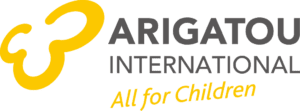Documents
Share
Tweet
Email

Arigatou International is a non-profit organization which works to bring people from all walks of life together to build a better world for children. Arigatou International is “All for Children,” and draws on universal principles of common good to offer compelling new ways for people of diverse religious and cultural backgrounds to come together to address children’s issues.
©2021 Arigatou International. All Rights Reserved. Terms of Use Privacy Policy Cookie Policy